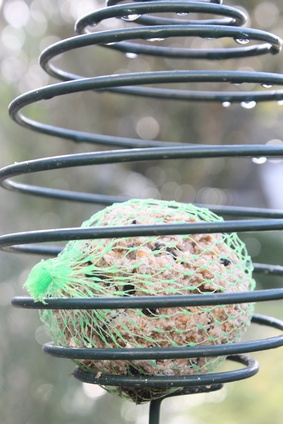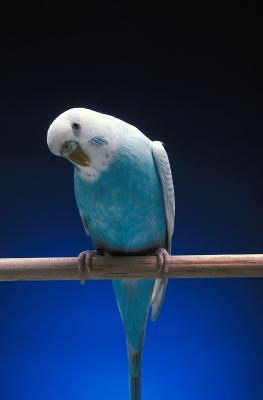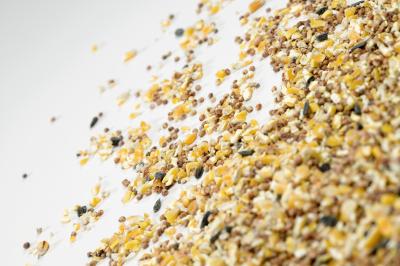Discount vitamins are a boon for all mammals, whether they have two legs or four. Some pets have particular ailments that would benefit greatly from adding supplements to their regular diet. Even the birds and reptiles in the family can benefit from better nutrition, and all pets will be happier and healthier with the proper diet. Although pet vitamins are available, they are usually more expensive and harder to find than similar human products, and there's no reason why humans and pets can't share a regimen of good nutrition.
The first step is to look at what your pet is already eating without supplements. This seems obvious, but how many people read the label on a bag of dog food? Most pet food is designed to pump protein and fiber into the animal's diet, which is reasonable since they're not in the wild catching mice and lizards. Unless you are spending top dollar for the most expensive brands, usually sold only in pet stores, your pet food probably doesn't have more than a few supplements, such as vitamins A and D. It may not have any. Since veterinarians usually recommend keeping pets on the same food, whatever they're missing nutritionally, they're missing all the time.
Please note that kittens, puppies, and baby guinea pigs are not good candidates for vitamin supplements. Their pet food already contains more supplements than adult food, and this guideline is intended for adult animals, especially older animals that eat less, are less active, and have more health problems. Pay close attention to dosages, as discussed below. Also many human supplements are totally inappropriate for animals, such as Human Growth Hormone. When in doubt, ask your vet. Most veterinarians do agree that some important and helpful supplements are missing in action from traditional pet food:
Glucosamine and Chondroitin
German Shepherds are one of many breeds that suffer from a hereditary disease called hip dysplasia, which means badly formed" hip in Latin. It's a degenerative disease, which just keeps getting worse with age until the poor creature can barely get up or go for a walk. Vets often prescribe Glucosamine Hydrochloride and Chondroitin Sulfate for this condition, because those compounds promote cartilage development and healthy joints. They're usually combined into one product that can easily be adjusted for pets by splitting pills, according to the pet's weight compared to human weight and dosage. Vitamin C and the minerals copper, manganese, and zinc are also important for cartilage and ligament health in older animals.
Thiamine, Riboflavin, and Niacin
These supplements, also known as Vitamins B1, B2, and B3, are often found in more expensive pet food. They help the body convert carbohydrates and fat into energy, while they promote proper function of the heart, nervous, and digestive systems. Vitamin B2 is needed to form red blood cells and antibodies, and is essential for healthy skin, nails, and coat. Riboflavin also helps prevent many types of eye diseases, including cataracts, which afflict many animals in old age. Niacin is needed for a healthy liver and metabolism, and it aids in repairing cells and DNA.
Vitamin E, Vitamin K, Omega 3 Fatty Acids, and Garlic
If you were covered in fur, you would probably be more interested in maintaining a healthy coat, too. All of these supplements do just that, plus they perform various other useful functions in a mammal's body, from maintaining a healthy immune system to good blood clotting and bone formation. Omega 3 and Vitamin E are found in fish oil, which is often easy to give pets because it's a liquid. All of these are easy to find in stores and websites that specialize in discount vitamins.
Calcium is for the Birds
There's a good reason to put a cuttlefish bone in the cage of your favorite bird, because he needs that calcium for his own healthy beak, bones, and talons. Commercial birdseed is almost a perfect food for a feathered pet, but it is missing calcium and Vitamin C. Cats may get enough calcium and Vitamins A and D if they are regular milk drinkers, but poor dogs have digestive systems that don't agree with milk. Dogs are very dependent on having healthy teeth, so they need more calcium in their diets. Calcium pills are easy to split and measure and are often combined with other supplements.
Children's Multivitamins for Your Pet?
One brand of generic children's chewable vitamins is virtually identical in composition and supplements to an expensive brand of dog multivitamins, even down to the dosages. One is fruit-flavored and the other is beef-flavored, but is there any reason to pay three times more for the beef-flavored one? Kids will seldom eat dog vitamins, but it's not the other way around. A pet owner can also learn a lot about proper dosages by studying the labels on children's multivitamins and vitamin-packed breakfast cereals. These dosages are usually on the conservative side, and the supplements contained are plain vanilla, with nothing too exotic. Even reptiles have been known to enjoy small chunks of kid's chewable vitamins, getting nutrients missing from their regular fare, especially if they don't eat much fruit.
Many supplements are sold in liquid form, or tinctures, designed to be added to food and drink with an eyedropper. This is often a more precise way to add the proper amount to food and may fool those finicky felines better than half a vitamin pill. Obviously the smaller the animal, the more careful his owner must be in giving him dietary supplements. Only a few are known to be harmful when administered in too large a dosage. One rule of thumb: if the animal would consume this nutrient as part of his varied diet in the wild, then it's okay to give him in captivity. That's the latest theory why dogs eat grass, because their ancestors were used to eating grass as hunters and scavengers in the wild.
Of course, good nutrition is not all a pet needs. Fresh air, clean water, fun exercise, and love are just as important. Regular trips to the vet and good grooming rituals are a must, and fleas and ticks should be vigorously controlled during their prime season in the summer. A breakout of ticks in one household might spread to neighboring households. Senior animals are often the most challenging to deal with as they lose some of their physical and mental abilities. Like human seniors, they're the ones who can benefit most from Garlic, Ginseng, Vitamin E, Vitamin C and the other supplements known to extend life, increase brain function, and bolster the immune system.
In truth, humans could benefit from eating a few common ingredients found in pet food, such as bone meal and chicken byproducts, but we already have a more varied diet. We know our pets must be missing some vitamins, but after food, licenses, medicines, and trips to the vet and the groomer, it's hard to take on another expense. Fortunately, there's no reason to buy high-priced pet food or special pet products to give our loved ones full nutrition. Lots of discount vitamins readily available for humans are suitable for four-legged mammals, too. In the long run, good nutrition is second only to love in making a pet's life long and fulfilling.

 How to Help Baby Birds That Have Fallen Out of the Tree
How to Help Baby Birds That Have Fallen Out of
How to Help Baby Birds That Have Fallen Out of the Tree
How to Help Baby Birds That Have Fallen Out of
 Ways to Decorate a Bird Cage
Ways to Decorate a Bird Cage
Ways to D
Ways to Decorate a Bird Cage
Ways to Decorate a Bird Cage
Ways to D
 How to Make Homemade Bird Food Suet
How to Make Homemade Bird Food Suet
Ho
How to Make Homemade Bird Food Suet
How to Make Homemade Bird Food Suet
Ho
 How to Kill Mites in Caged Birds
How to Kill Mites in Caged Birds
How t
How to Kill Mites in Caged Birds
How to Kill Mites in Caged Birds
How t
 Homemade Designs for Bird Traps
Homemade Designs for Bird Traps
Homema
Homemade Designs for Bird Traps
Homemade Designs for Bird Traps
Homema